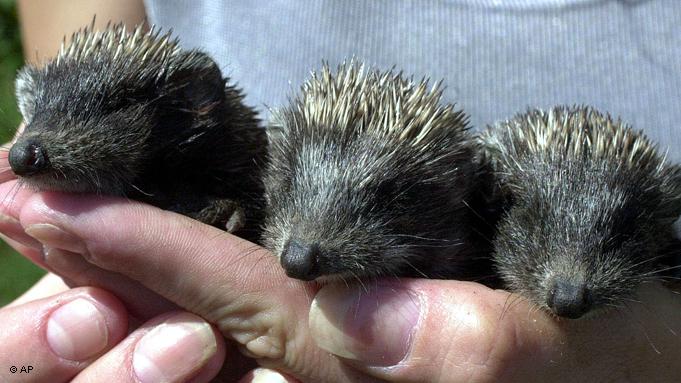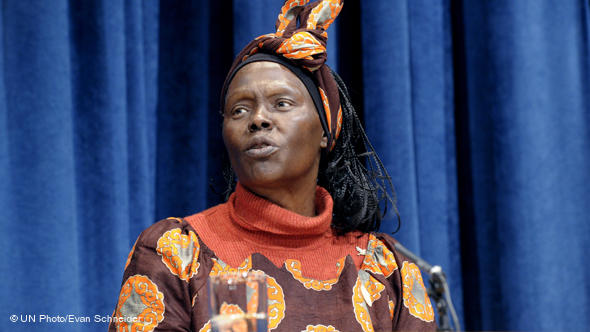Search Results for Tag: climate change
Hedgehogs could give climate clues

Hedgehogs don’t get much attention – they’re small, prickly animals that are awake at night and like to feed on insects. But their seasonal habits are gaining interest among scientists everywhere as a possible insight into climate change. Why?
Hedgehogs hibernate in the winter and usually emerge back into the world in March. But scientists say if the little creatures come out earlier or later, it could be an indicator of climate change. And on top of that, the number of hedgehogs has been declining quickly. Research reports show the population has plummeted from around 30 million in the 1950’s to just 1.5 million in 1995.
That’s why a few wildlife charities in the UK – including the The People’s Trust for Endangered Species and the British Hedgehog Preservation Society – want a special study to be conducted that would look into both the population decline and the hibernation patterns of hedgehogs. They say that a previous study published in the 1970’s established a direct link between hedgehog hibernation and climate change patterns.
Wind power crucial for fighting climate change
 As the parties are battling over ways to fight climate change in Durban at COP17, the Global Wind Energy Council published a new study on the potential of wind power for significantly reduce CO2 emissions in the energy sector. Since 40% of global CO2 emissions are produced by the power sector it is perfectly clear that we can not win the fight against climate change without a dramatic shift in the way we produce and consume electricity. As science makes clear: global emissions need to peak and begin to decline before 2020. That is a goal only to be reached with a increase of in renewable energy deployments. While building a conventional power plant can take up to ten years, a large wind farm can be put up in a matter of months. And within three to six months of operations, a wind turbine has offset all emissions from its construction, to run virtually carbon free for the remainder of its 20 year lifetime, according to the study.
As the parties are battling over ways to fight climate change in Durban at COP17, the Global Wind Energy Council published a new study on the potential of wind power for significantly reduce CO2 emissions in the energy sector. Since 40% of global CO2 emissions are produced by the power sector it is perfectly clear that we can not win the fight against climate change without a dramatic shift in the way we produce and consume electricity. As science makes clear: global emissions need to peak and begin to decline before 2020. That is a goal only to be reached with a increase of in renewable energy deployments. While building a conventional power plant can take up to ten years, a large wind farm can be put up in a matter of months. And within three to six months of operations, a wind turbine has offset all emissions from its construction, to run virtually carbon free for the remainder of its 20 year lifetime, according to the study.
In the latest publication concerning “Wind Energy and climate policy” introduced here in Durban it says that in terms of the targets already stated by the industrialized countries for the period up to 2020, global wind energy could contribute at least 44% of the total emissions reductions, i.e. 1.5 billion tons of CO2 every year. And although that is nowhere near what the science tells us is required, even for a larger reduction wind power could play a crucial role in achieving that goal.
As Nelson Mandela said: “It always seems impossible, until it is done.”
Chocolate No More?

The International Center for Tropical Agriculture just released a report that shows that the cocoa supply in West Africa is under threat. As our climate gets warmer and warmer, the soil heats up, and the normal patterns of rainfall are also changing quickly. Why is that important? Because Ghana and Côte d’Ivoire are home to half of the world’s cocoa supply.
According to the International Center for Tropical Agriculture, which is based in Cali, Colombia, by the year 2050 the amount of land that’s now used for cocoa production will be drastically reduced, and instead moved to different plots of land that don’t offer suitable growing conditions. And since the demand for chocolate is on the rise but production is falling, we’ll probably end up paying a lot more for the sweet treat.
The study’s authors recommend finding cocoa plant varieties that are heat-resistant and can adapt to changing climate conditions.
In memory of Wangari Maathai
She was the first woman who got the Nobel Peace Prizein 2004 for her campaigns to save Kenyan forests. Kenyan environmentalist, Wangari Maathai, died on September 25th while undergoing treatment for cancer at a hospital in Nairobi. She worked over the last decades to plant over 20 million trees throughout Africa. She always had to battle with the government of her country. She was imprisoned and brutalised, but she won.
In 1977 Wangari Maathai founded the Green Belt Movement. The organisation will outlast her. “You cannot protect the environment unless you empower people, you inform them, and you help them understand that these resources are their own, that they must protect them,” she said and she was definitly right.
Here you’ll find a video (“I will be a hummingbird”) that is worth watching to get a sense of Wangari Maathai.
At the organisations homepage you can share your condolences.
Climate Champion Iranildo at the International TUNZA Conference 2011
The British Council International Climate Champion Iranildo de Sousa Ferreira was selected by the United Nations Environment Programme (UNEP) to represent Brazil at the TUNZA International Children & Youth Conference on the Environment. The conference starts today.
 Iranildo de Sousa Ferreira was selected from thousands of applicants from around the world. He will be at the TUNZA International Conference in Indonesia until 01 October .
Iranildo de Sousa Ferreira was selected from thousands of applicants from around the world. He will be at the TUNZA International Conference in Indonesia until 01 October .
Iranildo helped to prepare proposals to be presented in the next United Nations Conference on Sustainable Development – Rio +20, and will evaluate the contribution of youth to the International Year of Forests and share his experiences of activism and his work with experts in the environmental area.
TUNZA will be held by the UNEP in collaboration with the Government of Indonesia. It will bring together 1400 children and youth, to discuss their role and inputs to the upcoming United Nations Conference on Sustainable Development – Rio+20. Under the slogan “Reshaping our future through a Green Economy and Sustainable Lifestyle”, the conference will also review the contribution of youth to the International Year of Forests and how they can adopt more environment-friendly lifestyles. The conference themes are Rio + 20 (Green Economy) / Green Lifestyles, Forests, Sustainable Consumption and State of the Global Environment from the youth perspective.
“This is not a time for pessimism or to turn a blind eye to environmental problems. It is time for constructive and decisive action because the alert signal has been given.” Iranildo says.









Feedback